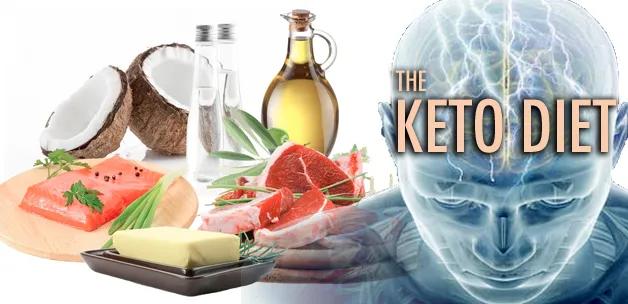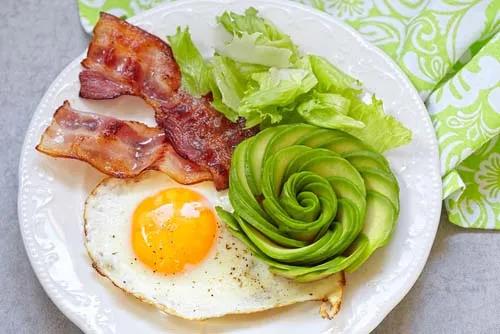
There are always brand new diets promising unprecedented results and life-changing health. Some of them turn out to be really good, and some are later proved to be very unhealthy. It can be hard to know what to believe. But the ketogenic diet has been around a long time and has promising results.
A ketogenic diet is a high-fat, adequate-protein, and low-carbohydrate diet aimed at achieving the highest functioning mind and body possible. Studies show a ketogenic diet can slow and even reverse symptoms of memory loss and cognitive impairment throughout all the dementia stages.
So what exactly is a ketogenic diet? As said above, it’s a high-fat, adequate-protein, low-carb diet that produces ketones – compounds the body can use to produce energy. In many studies ketones have been found to be neuroprotective, meaning they defend your brain from degenerating. In other words, a ketogenic diet is a great way to reverse Alzheimer’s or dementia naturally.
As research shows, there is a strong link between blood sugar disorders and various stages of dementia, including memory loss and Alzheimer’s. The link between insulin resistance and diabetes is so high that Alzheimer’s has sometimes been called “type 3 diabetes”. The human body wasn’t designed to consume a diet so full of sweets, starchy foods, breads, and pastas. Underlying the accumulation of excessive body fat is a far more dangerous situation: the degeneration of our brains, which leads to memory loss, dementia, and Alzheimer’s disease.
Because glucose and insulin mechanisms in the brain are so impaired by the time one enters into the dementia stages, a ketogenic diet can be a great natural cure for Alzheimer’s as it can slow or even reverse symptoms. This is because the brain is now burning ketones for energy instead of glucose, which can help restore function.
So how do you need to eat to be on a ketogenic diet? Here are some of the recommended eating suggestions for a ketogenic diet as a dementia diet:
- Eliminate all sweeteners (even natural ones), starchy carbohydrates, and grains from your diet
- Limit the amount of fruit you eat. The main fruit you should be eating is berries, as it’s lower in sugar and good for your brain
- You only need to eat enough protein to meet your daily needs, but it should all be grass-fed meats, wild-caught fish, and pastured eggs. Dairy protein is not recommended as it can cause inflammation
- Eat a lot of nutrient-dense, non-starchy vegetables with your meals
- Dietary fats are very good for your brain. But you need to avoid all hydrogenated fats and vegetable oils that are high in omega 6 fatty acids such as corn, sunflower, safflower, canola, and soy. Instead, you should use olive oil, coconut oil, medium-chain triglyceride oil (MCT), butter, or ghee. MCT oil is a great addition to the diet for dementia patients because the liver converts it directly to ketone bodies.
Here are some suggestions of foods to eat when you are on a ketogenic diet:

- Wild-caught fish – salmon, sardines, and mackerel are high in omega 3 fatty acids and very low in carbohydrates
- Low-carb vegetables such as spinach, kale, broccoli, cauliflower, or brussel sprouts.
- Cheeses
- Avocados
- Grass-fed meats
- Eggs
- Coconut Oil
- Olive Oil
- Nuts and seeds
- Berries
- Butter and cream
- Olives
- Unsweetened coffee and tea
- Dark chocolate and cocoa powder (cocoa has been called a super fruit because it has at least as many antioxidants as all other fruits)
Changing a diet in this way can be a dramatic shift for some people, but the health benefits that go along with it are incomparable. The brain functions much better when it isn’t bogged down with high carbohydrate and sugar-filled diets.



